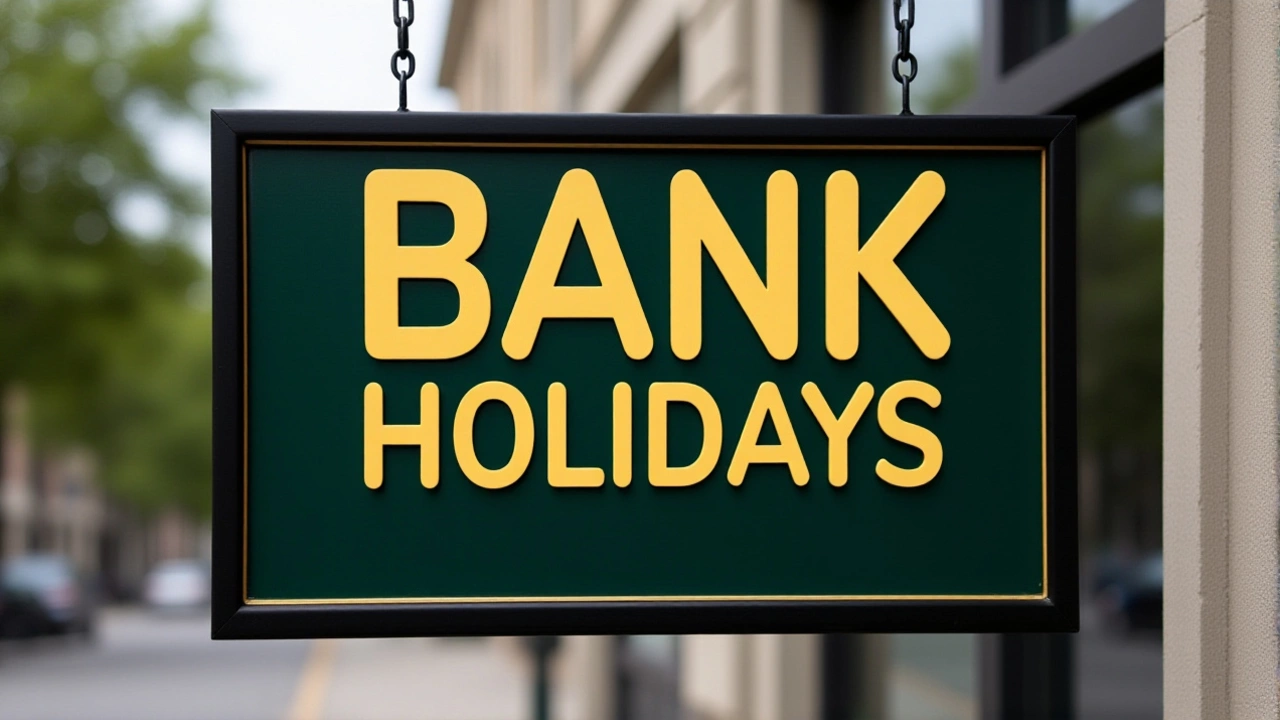For the first time in years, banks across India face an unprecedented stretch of closures — five days in a row from November 5 to 9, 2025 — but only in specific states. While digital banking remains fully operational, the physical shutdown of branches in Mizoram, Maharashtra, Bihar, Meghalaya, Karnataka, and 12 other states will disrupt in-person banking services, from cheque deposits to demand draft issuance. The Reserve Bank of India (RBI) released its official Holiday Calendar for 2025-2026, revealing a mosaic of regional observances that, when stacked, create a rare five-day banking blackout in parts of the country.
Why November 5–9 Is Unusual — And Why It Matters
It’s not every year that five consecutive days see bank closures across multiple states. What makes this stretch extraordinary is the alignment of religious, cultural, and electoral events. November 5 is Guru Nanak Jayanti and Kartik Purnima — major Sikh and Hindu observances — prompting closures in 17 states including Uttar Pradesh, West Bengal, and Chandigarh. The next day, November 6, brings a double whammy: the Nongkrem Dance Festival in Meghalaya and the Bihar Legislative Assembly General Election. Then, November 7, Meghalaya shuts again for the Wangala Festival, a harvest celebration of the Garo tribe. On November 8, Karnataka observes Kanakadasa Jayanthi, honoring the 16th-century saint-poet, while the entire nation gets its regular second Saturday off. Sunday, November 9, is the weekly holiday everywhere.
Here’s the twist: this isn’t a national shutdown. It’s a patchwork. A customer in Delhi might find their branch open on November 6, while someone in Patna or Shillong walks into a locked door. The RBI doesn’t mandate closures for state-specific holidays — it simply approves them. That means banks in Tamil Nadu or Gujarat will operate normally on November 6, even as their neighbors shut down.
Digital Banking Is the Lifeline — But Not a Full Substitute
Customers shouldn’t panic. The Reserve Bank of India made it clear: “Essential financial services remain available.” UPI transfers, mobile banking apps, net banking, and ATMs will function without interruption. You can pay bills, send money to family, or check your balance — all day, every day. But here’s what won’t work: depositing a physical cheque, cashing a large sum, getting a demand draft, or applying for a loan in person. These require branch staff, physical documents, and manual processing.
“I had to reschedule my property transaction,” says Arvind Mehta, a real estate agent from Hyderabad. “The buyer wanted to deposit a ₹12 lakh cheque on November 7. We had to push it to the 10th. That’s three days of delay — and three days of anxiety.”
Small businesses, especially in rural areas, feel the pinch. “We rely on cash flow from daily sales,” says Deepa Singh, a vendor in Ranchi. “If the bank is closed for five days, I can’t deposit my earnings. I have to keep cash at home — and that’s risky.”
Regional Holidays Are Not Just Tradition — They’re Economic Events
These closures aren’t arbitrary. The Reserve Bank of India follows the Negotiable Instruments Act and consults with state governments before approving holidays. In Meghalaya, the Nongkrem and Wangala festivals are not just cultural — they’re civic events. Schools, offices, and even some private businesses shut down. The same goes for Kanakadasa Jayanthi in Karnataka, where processions draw thousands.
“These holidays reflect India’s diversity,” says Dr. Priya Nair, an economist at the Indian Council for Research on International Economic Relations. “You can’t impose a one-size-fits-all calendar on a country with 28 states and 8 union territories. The RBI’s approach — allowing regional flexibility — is actually smart governance.”
Still, the system isn’t perfect. Many customers don’t know which holidays apply where. A quick Google search doesn’t always help. Banks rarely send out comprehensive alerts. “I thought all banks were closed on November 6,” says Rahul Kapoor, a college student in Chennai. “I waited until Monday to pay my rent. I was lucky — my landlord accepted UPI.”
What Comes Next? The Calendar Doesn’t Stop
The November stretch isn’t over. After the weekend, banks get another break on November 15 (third Saturday), then the fourth Saturday on November 22 — another nationwide weekly off. November 23 and 30 are Sundays, so closures continue. That’s six more holiday days in the month.
For businesses and individuals, the lesson is clear: plan ahead. Don’t assume all banks follow the same schedule. Check your branch’s specific holiday list — many banks, including HDFC Bank, publish these online. Use UPI for urgent transfers. Keep a small cash buffer if you’re in a region with frequent closures.
And if you’re wondering why this matters beyond inconvenience — consider this: in a digital-first economy, the persistence of physical bank holidays reveals how deeply tradition still shapes daily life in India. It’s not just about money. It’s about identity, faith, and governance.
Frequently Asked Questions
Which states will have banks closed on November 5, 2025?
Banks will close in 17 states and union territories on November 5, 2025, for Guru Nanak Jayanti and Kartik Purnima: Mizoram, Maharashtra, Madhya Pradesh, Odisha, Chandigarh, Uttarakhand, Telangana, Arunachal Pradesh, Rajasthan, Jammu and Kashmir, Uttar Pradesh, Nagaland, West Bengal, New Delhi, Chhattisgarh, Jharkhand, and Himachal Pradesh. Not all banks nationwide are affected — only those in these regions.
Will UPI and mobile banking work during the five-day closure?
Yes. UPI, mobile banking apps, internet banking, and ATMs will remain fully functional throughout the entire period. You can transfer money, pay bills, and check balances without disruption. Only branch-dependent services — like cheque deposits, demand drafts, and large cash transactions — will be unavailable.
Why are banks closed on November 6 in Bihar and Meghalaya?
Banks in Bihar are closed because it’s the day of the Legislative Assembly General Election, a statutory holiday under election laws. In Meghalaya, the closure is for the Nongkrem Dance Festival, a major Khasi cultural event. Both are officially recognized by the RBI as regional holidays, and banks in those states comply with local government directives.
How many total bank holidays are there in November 2025?
There are 11 bank holidays in November 2025 according to the RBI calendar: November 1 (Kannada Rajyothsava), November 2 (Sunday), November 5 (Guru Nanak Jayanti), November 6 (Nongkrem + Bihar elections), November 7 (Wangala Festival), November 8 (Kanakadasa Jayanthi + second Saturday), November 9 (Sunday), November 15 (Saturday), November 22 (fourth Saturday), November 23 (Sunday), and November 30 (Sunday). Many overlap, creating the five-day stretch.
Do all banks follow the same holiday schedule?
No. The RBI sets the framework, but individual banks — including commercial, cooperative, and regional rural banks — must follow state-specific holidays. A branch in Bangalore will close on November 8 for Kanakadasa Jayanthi, but one in Kolkata will remain open. Always check your bank’s local holiday list.
What should I do if I need to deposit a cheque during the closure?
Use an ATM with cheque deposit capability — many banks now allow this even on holidays. Alternatively, scan and upload the cheque through your mobile banking app if your bank supports digital deposit. If neither option works, plan to visit the branch on the next working day, which will be November 10 in most affected regions.

